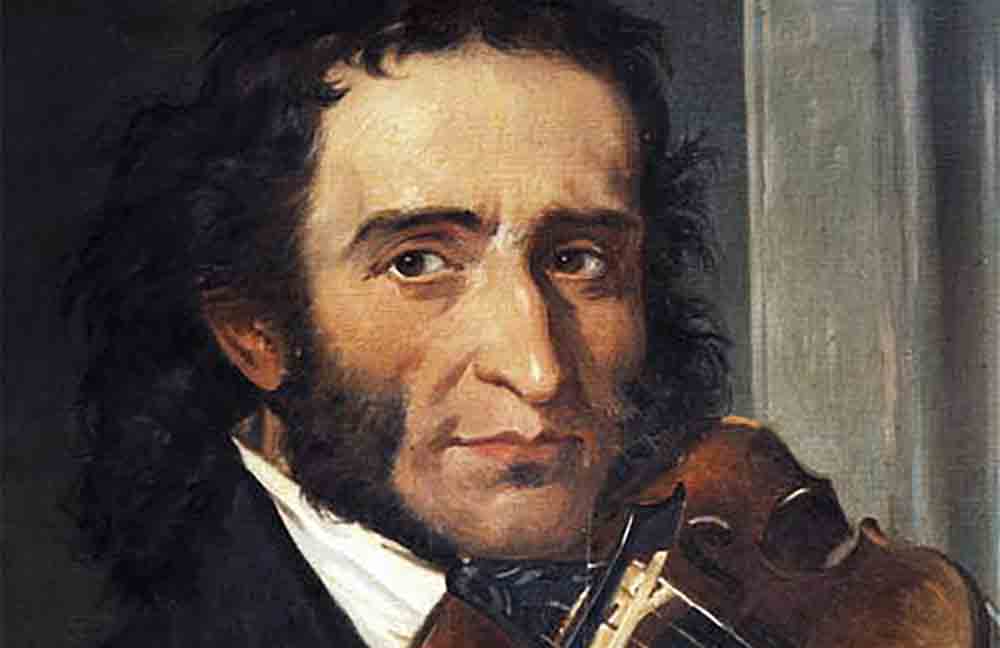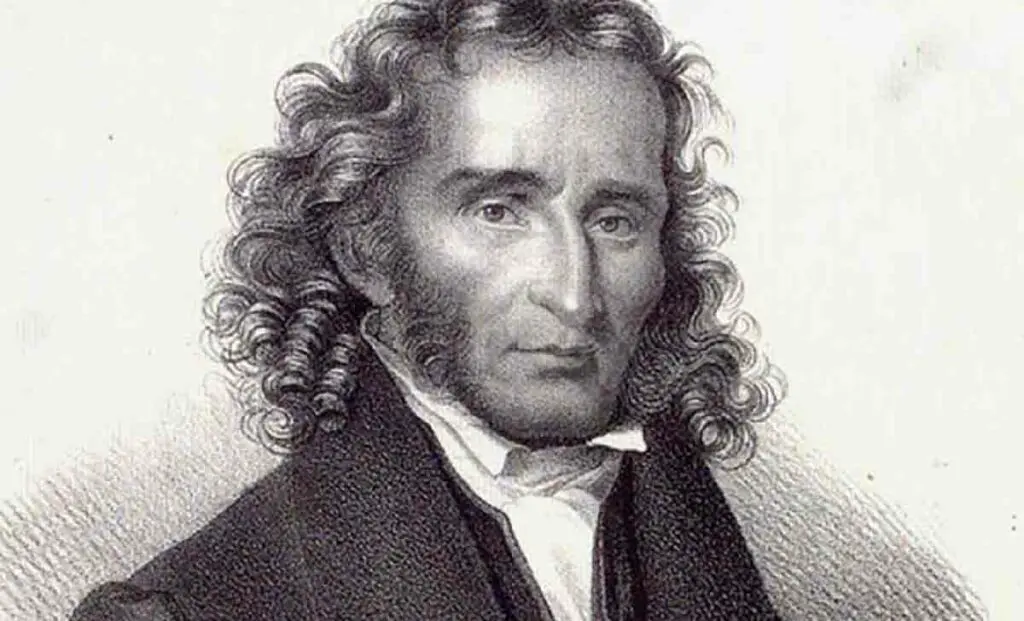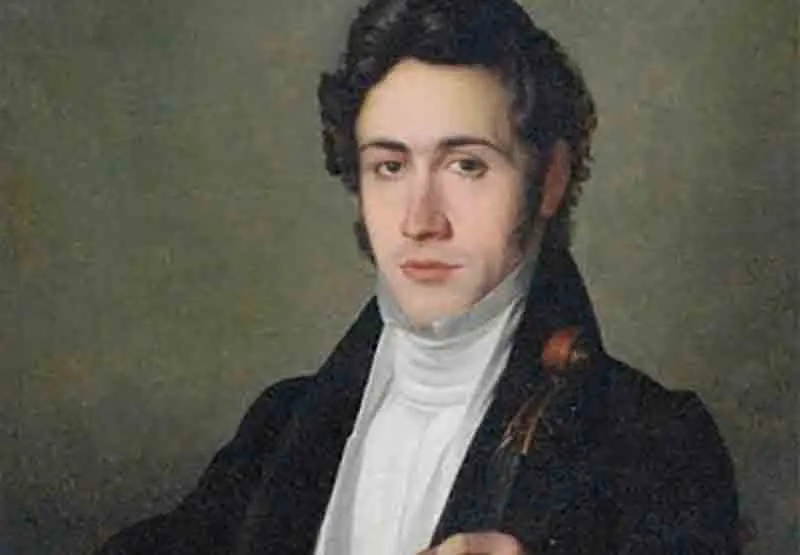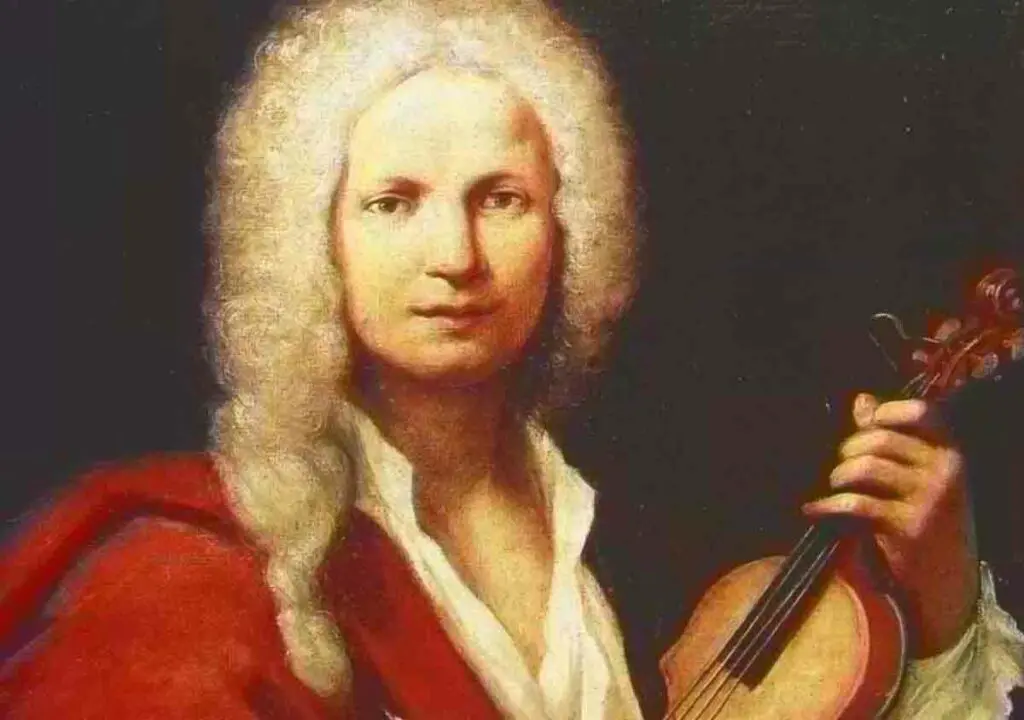Niccolò Paganini became famous as a virtuoso violinist and composer. They said that Satan plays with the hands of the maestro. When he took the instrument in his hands, everything around him froze.
Paganini's contemporaries were divided into two camps. Some said that they were facing a real genius. Others said that Niccolò is a common swindler who managed to convince the public that he is talented.

The creative biography and personal life of Niccolò Paganini have many secrets and mysteries. He was a secretive person and did not like to discuss the details of his life.
Childhood and youth
The famous composer Niccolò Paganini was born in 1782 into a poor family. Parents were very worried about the health of the newborn. The fact is that he was born prematurely. Doctors did not give a chance that the baby would survive. But a miracle happened. The premature boy not only recovered, but also pleased the family with his genius.
Initially, the head of the family worked in the port, but later he opened his own shop. Mom devoted her whole life to raising children. It was said that one day a woman dreamed of an angel who told her that her son had a brilliant musical future. When she told her husband about the dream, he did not attach any importance to it.
It was his father who instilled in Niccolo a love of music. He often played the mandolin and made music with the children. Paganini Jr. was not carried away by this instrument. He was more interested in playing the violin.
When Niccolo asked his father to teach him how to play the violin, he readily agreed. After the first lesson, the boy began to play a musical instrument professionally.
Paganini's childhood passed in severity. When his father realized that the boy played the violin well, he forced him to constantly rehearse. Niccolo even ran away from classes, but his father took harsh measures - he deprived him of food. Exhausting violin lessons soon made themselves felt. Paganini Jr. developed catalepsy. When the doctors arrived at Niccolò's house, they informed the parents of their son's death. The father and mother, who were heartbroken, began to prepare for the funeral ceremony.

Unexpected turn
A miracle happened at the funeral - Niccolo woke up and sat in a wooden coffin. It was said that there were a significant number of fainting spells at the funeral ceremony. When Paganini recovered, the father again handed the instrument to his son. True, now the boy was not studying with a relative, but with a professional teacher. He was taught musical notation by Francesca Gnecco. Around the same time period, he wrote his first composition. At the time of the creation of the sonata for violin, he was only 8 years old.
In the provincial town in which Niccolo spent his childhood, there were rumors that a real musical genius was being brought up in the Paganini family. The most important violinist of the city found out about this. He visited Paganini's house to dispel these rumors. When Giacomo Costa heard the young talent playing, he was delighted. He spent six months to transfer his knowledge and skills to the boy.
The creative path of the composer Niccolò Paganini
Classes with Giacomo definitely benefited the teenager. He not only enriched his knowledge, but also met other talented musicians. In the creative biography of Paganini there was a stage of concert activity.
In 1794, Niccolo's first performance took place. The debut took place at the highest level. After this event, Marquis Giancarlodi Negro became interested in the composer. It is known that he was a fan of classical music. When the marquis found out about Paganini's position and about the conditions under which such a "diamond" disappears, he took the young man under his wing.
The Marquis was interested in the further development of his talented ward. Therefore, he paid the guy for music lessons taught by the cellist Gasparo Ghiretti. He managed to teach Paganini a special technique for composing compositions. The technique did not involve the use of musical instruments. Under the direction of Gaspard, the maestro composed several concertos for violin and several dozen fugues for piano.
A new stage in the work of the composer Niccolò Paganini
In 1800, a new stage in the maestro's creative biography began. He worked on writing serious compositions, which eventually added to the list of immortal world hits. Then he held several concerts in Parma, after which he was invited to the palace of Duke Ferdinand of Bourbon.
The head of the family, who saw that the authority of his son was strengthening, decided to capitalize on his talent. For his son, he organized a large-scale concert in Northern Italy.
The halls in which Paganini performed were overcrowded. Honorary citizens of the city came to Niccolo's concert to personally hear his excellent violin playing. It was a difficult period in the life of the maestro. Because of the tour, he was exhausted. But, despite all the complaints, the father insisted that the tour not stop.

During this period of time, the composer had a very busy touring schedule, and he also composed masterpiece capriccios. "Caprice No. 24", which was written by Paganini, made a revolution in the world of violin music. Thanks to the compositions, people presented vivid pictures. Each miniature that Niccolo created was special. The works evoked mixed feelings in the listener.
The musician wanted freedom. His father limited his desires, so he decided not to communicate with him. This time fortune smiled at the composer. He was offered the role of first violinist in Lucca. He gladly agreed, because he understood that the position would help to be at a distance from the head of the family.
He described this passage from his life in his memoirs. Paganini described with such joy that he was embarking on an independent life that no one doubted his sincerity. Living independently had a positive effect on his career. In particular, the concerts were very passionate. There have also been changes in my personal life. Paganini began to gamble, travel and have sexual adventures.
Life in the 1800s
In 1804 he returned to Genoa. In his historical homeland, he wrote violin and guitar sonatas. After a short rest, he again went to the palace of Felice Bacocchi. Four years later, the composer was forced to move to Florence along with the rest of the courtiers. He spent about 7 years in the palace. But soon Paganini realized that he seemed to be in prison. And he decided to leave the "golden cage".
He came to the palace dressed as a captain. When he was politely asked to change into regular clothes, he brazenly refused. Thus, Napoleon's sister drove Paganini out of the palace. At that moment, Napoleon's army was defeated by Russian troops, so such a trick for Niccolo could cost at least an arrest, a maximum execution.
The musician moved to Milan. He visited the theater "La Scala". There he saw the play "The Wedding of Benevento". He was so inspired by what he saw that in just one evening he created variations for orchestral violin.
In 1821 he was forced to suspend his concert activity. The maestro's illness worsened. He felt the coming of death. Therefore, he asked his mother to come so that she could say goodbye to him. When the woman came to Niccolo, she could not recognize her son. She made considerable efforts to restore his health. Mother took Paganini to Pavia. The violinist was treated by Ciro Borda. The doctor prescribed a diet for the maestro and rubbed mercury-based ointment into the skin.
Since medicine was then underdeveloped, the doctor had no idea that his patient was worried about several diseases at once. Still, the treatment did him good. The musician recovered a little, and only a cough remained with the maestro until the end of his days.
Details of privacy
It cannot be said that Niccolo was a prominent man. However, this did not prevent him from being the center of attention of women. Already at the age of 20, Paganini had a lady of the heart, who, after concerts, took the young man to her estate for carnal pleasures.
Elisa Bonaparte Baciocchi is the second girl who not only stole the maestro's heart and became his muse, but also brought Paganini closer to the palace. Relations between young people have always been a little strained. Despite this, the passion that was between them could not be "pacified". The girl inspired the composer to create "Caprice No. 24" in one breath. In the studies, the maestro showed the emotions that he felt for Eliza - fear, pain, hatred, love, passion and contempt.
When the relationship with Eliza ended, he went on an extended tour. After the performances, Paganini met Angelina Kavanna. She was an ordinary tailor's daughter. When Angelina found out that Paganini was coming to the city, she burst into the hall and penetrated backstage. She said that she was ready to pay the composer for the night spent with him. But Niccolo did not take any money from the lady. He loved her. The girl ran away after her lover to another city, without even notifying her father of her intention. A few months later, it turned out that she was expecting a child.
After Niccolo found out that his woman was expecting a child, he made a not very noble decision. The musician sent the girl to her father. The head of the family accused Paganini of perverting her daughter and sued. While there were proceedings, Angelina managed to give birth to a child, but soon the newborn died. Niccolo still had to pay the family the amount to compensate for moral damage.
Birth of an heir
A few months later, he was seen in a relationship with the charming Antonia Bianca. It was the strangest relationship ever. A woman often cheated on a man with handsome men. And she did not hide it. She explained her behavior by the fact that Paganini was often sick, and she lacked male attention. Niccolo also had sexual relations with the fairer sex. For many, it remained a mystery what kept this couple together.
Soon, the first-born was born to the beloved. By that time, he dreamed of an heir, so Paganini accepted the information about the pregnancy and the birth of a child with great enthusiasm. When his son was born, Niccolo plunged into work. He wanted to provide the child with everything necessary for a normal existence. When the son was 3 years old, his parents separated. Paganini obtained custody of the child through the courts.
Maestro's biographers say that Paganini's greatest love was Eleanor de Luca. He fell in love with a woman in his youth, but could not remain faithful to her. Niccolo left, and then again returned to Eleanor. She accepted a lustful lover, even was faithful to him.
Interesting facts about the composer Niccolò Paganini
- He was one of the most hidden musicians and composers of the time. Niccolo did not share the secrets of playing the violin with anyone. He had no students and tried to keep his friends at arm's length. It was said that he really lived only on stage.
- It is known that Paganini was a very gambling man. The game fascinated him so much that he could lose a significant amount of money.
- His compatriots said that he made a deal with Satan. These rumors gave rise to many more ridiculous conjectures. Everything led to the fact that Paganini was forbidden to play in churches.
- He liked to argue. Once the maestro argued that he could adequately play just one string. Of course, he won the argument.
- On stage, the musician was irresistible, but in ordinary life he behaved strangely. Paganini was very distracted. Often he forgot names, and also confused dates and faces.
The last years of the life of the composer Niccolò Paganini
In 1839 the musician decided to visit Genoa. This trip was not easy for him. The fact is that he had tuberculosis. In the last years of his life, he suffered from swelling of the lower extremities and a severe cough. He hardly left the room. The disease undermined his health. He died May 27, 1840. At the time of his death, he was holding a violin in his hands.
The ministers of the church did not want to transfer the musician's body to the earth. The reason for this was that he did not confess before his death. Because of this, the body of Paganini was cremated, and the faithful lady of the heart, Eleanor de Luca, was engaged in the burial of the ashes. There is another version of the maestro's funeral - the musician's body was buried in Val Polcevere. And 19 years later, Paganini's son ensured that the remains of his father's body were buried at the Parma cemetery.



